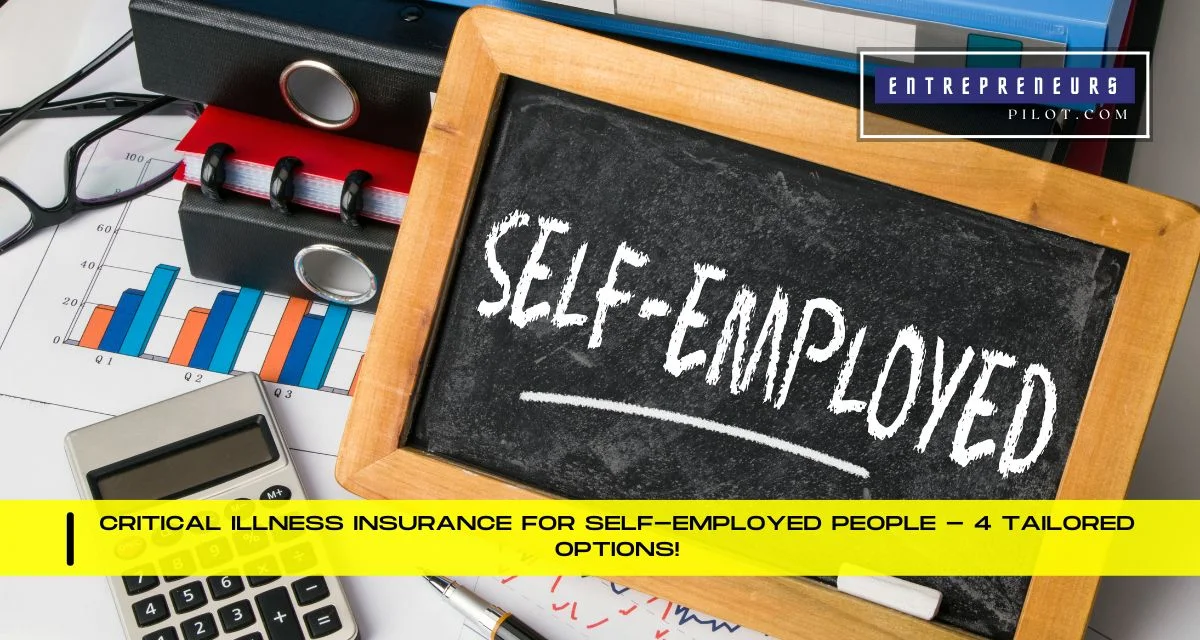Introduction
Imagine this: you’re self-employed, living the dream of being your own boss, setting your schedule, and pursuing your passion. But what happens if an unexpected illness strikes? Without the safety net of employer-provided benefits, you’re vulnerable. That’s where critical illness insurance for self-employed people comes into play. It’s not just a policy; it’s peace of mind, ensuring you can focus on recovery without financial stress. In this article, we’ll explore four tailored options for critical illness insurance that are specially designed for the self-employed. Prepare to arm yourself with knowledge and safeguard your future!
Table of Contents
Tailored Option 1: Individual Critical Illness Insurance Plans
As a self-employed individual, your first line of defense is a personal critical illness insurance plan. These plans are crafted to provide a lump-sum payment if you are diagnosed with one of the specific illnesses covered by your policy, such as cancer, heart attack, or stroke. This lump sum can be used for anything from medical expenses not covered by health insurance to regular living expenses, allowing you to maintain your lifestyle and business operations without dipping into savings or going into debt. When selecting an individual plan, look for customizable coverage options to ensure the policy fits your specific needs and budget.
- For Expert Financial Insights And Guidance, You Can Visit Our Sister Site – ArabsGeek.com Now!
- Curiosity Piqued? Dive Into the Most Captivating Financial Content by Visiting Our Homepage!
- Unlock Exclusive Business Opportunities! 🚀 Connect with Us Now at our Email: [email protected]!
Tailored Option 2: Business Overhead Expense Insurance
Running a business as a self-employed individual means you have fixed expenses, whether or not you’re able to work. Business overhead expense insurance is a type of critical illness insurance that specifically covers these ongoing business expenses if you’re unable to work due to a critical illness. This can include rent or mortgage payments for your business premises, employee salaries, and utility bills, among others. It ensures that your business can continue operating even if you need to step away for a period of recovery, providing a crucial safety net for your livelihood.
Tailored Option 3: Combined Life and Critical Illness Insurance
For those seeking a more comprehensive solution, combining life and critical illness insurance offers a dual layer of protection. This option not only provides a lump sum if you’re diagnosed with a covered critical illness but also pays out a benefit upon death. The advantage here is the simplicity of managing a single policy and the potential cost savings compared to purchasing separate policies. It’s an attractive option for self-employed individuals looking for a straightforward approach to securing their financial future and protecting their loved ones.
Tailored Option 4: Group Policies for Self-Employed Associations
Joining a self-employed or professional association can offer access to group critical illness insurance policies. These policies often come with the benefit of lower premiums due to the collective bargaining power of the group. Additionally, they may offer coverage options that are more tailored to the risks associated with specific professions. If you’re a member of such an association, exploring these group policy options can provide affordable and relevant coverage to meet your needs.
Conclusion | Critical Illness Insurance For Self-Employed People
Critical illness insurance is a vital component of a comprehensive financial plan for self-employed individuals. It offers the security of knowing that if the unexpected happens, you can focus on recovery without worrying about your finances or your business. Whether you opt for an individual plan, business overhead expense insurance, a combined life and critical illness policy, or a group policy through a professional association, the key is to choose the option that best fits your unique situation. Protecting yourself against the financial impact of a critical illness ensures that your self-employment journey can continue with confidence, even in the face of health challenges.
Frequently Asked Questions
01. What kind of illnesses are covered by critical illness insurance for self-employed people?
Critical illness insurance typically covers a range of severe health conditions, including but not limited to cancer, heart attack, stroke, major organ transplants, and coronary artery bypass surgery. Coverage can vary between policies, so it’s essential to review the specifics of each plan.
02. How much does critical illness insurance cost for self-employed individuals?
The cost of critical illness insurance varies based on several factors, including the amount of coverage, the specific illnesses covered, your age, health status, and lifestyle. It’s advisable to get quotes from multiple insurers to find a policy that fits your budget and coverage needs.
03. Can I still get critical illness insurance if I have a pre-existing condition?
While having a pre-existing condition can affect your eligibility and the cost of your policy, it doesn’t automatically disqualify you from obtaining critical illness insurance. Insurers may impose a waiting period before covering conditions related to your pre-existing condition, or they may exclude specific conditions altogether. It’s important to disclose all relevant health information when applying for a policy.
04. How long does the critical illness insurance coverage last?
The duration of coverage can vary. Some policies offer coverage until a specific age, such as 65 or 70, while others may provide lifetime coverage. The policy term will be specified in your insurance contract, so be sure to review it carefully.
05. Can I use the lump-sum payout from critical illness insurance for anything I want?
Yes, one of the significant benefits of critical illness insurance is the flexibility of the lump-sum payout. You can use the funds for medical expenses not covered by health insurance, to pay for living expenses, or even to adapt your home or business to accommodate your recovery needs. The choice is yours.











